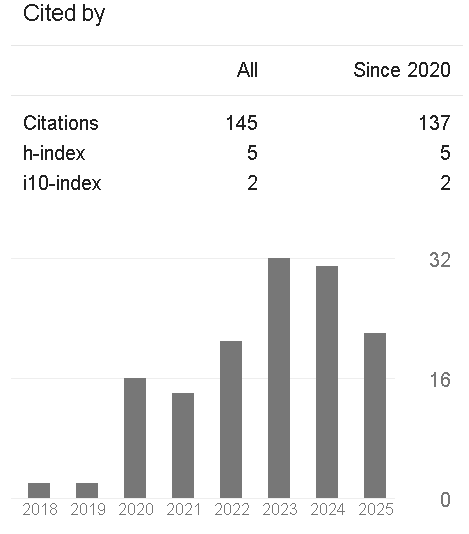Methods of Calculation for Solving the Issues of Obligatory Will: An Inductive, Analytical and Comparative Study
الطرق الحسابية في حل مسائل الوصية الواجبة: دراسة استقرائية تحليلية مقارنة
DOI:
https://doi.org/10.31436/ijfus.v8i2.339Keywords:
Wills, the amount of the required will, inheritance, will by revelation, calculationAbstract
The research aims to highlight the way of calculation of obligatory will and how to estimate its quantity, since the Arab laws that established this will do not clarify the extraction method of its calculation. Rather, they restrict the one who extracts it with three restrictions mostly agreed by all laws. Therefore, the paper depends on an inductive, analytical, and comparative approach to the Arab laws which legalized provisions of the obligatory will. Consequently, it is found that there are five methods for extraction which are authorized by Egyptian law, Syrian law, Iraqi law, and Yemeni law. Other Arab countries follow the mentioned laws in their calculation. The reason for the diversity and the differences in the solution despite agreement on the principles and restrictions returns to the basis of the method of calculating this will. Thus, they went in two directions, the first one makes it a simulation of an optional will, while the other one makes it a simulation of inheritance. To recap, most of these methods pose issues and problems when applied in the real world. Besides, this paper found that the Egyptian method which is applied in the courts nowadays is the closest calculation approach to the concept of legitimate optional will with one exception of the binding quality acquired by the force of law. If the law has obligated the heirs to do so, then at least the method of dissolving it should be similar to the method approved by the jurists in their jurisprudential sources.
Downloads
Metrics
References
Abū Zahrah, M. (1950). Sharḥ Qānūn al-Waṣiyyah. Maktabat al-Anjlū al-Miṣriyyah.
Abū Zahrah, M. (n.d.). Aḥkām al-Tarikāt wa-al-Mawārīth. Dār al-Fikr al-ʿArabī.
Al-Anṣārī, Z. M. A. Z. (n.d.). Asnā al-Maṭālib fī Sharḥ Rawḍ al-Ṭālib. Dār al-Kitāb al-Islāmī.
Al-Azʿar, R. A. (2008). Al-Waṣiyyah al-Wājibah [Master's thesis]. Al-Jāmiʿah al-Islāmiyyah bi-Ghazzah.
Al-Buhūtī, M. Y. S. Ḥ. I. (n.d.). Kashshāf al-Qināʿ ʿan Matn al-Iqnāʿ. Dār al-Kutub al-ʿIlmiyyah.
Al-Bulqīnī, S. A. Ḥ. U. R. (2012). Tadrīb al-Mubtadiʾ wa-Tahdhīb al-Muntahā (A. Y. N. K. al-Miṣrī, Ed.). Dār al-Qiblatayn.
Al-Farḍī, I. A. I. (1920). Al-ʿAdhb al-Fāʾiḍ Sharḥ ʿUmdat al-Fāriḍ. Dār Rafaʿ al-Musāham.
Al-ʿĪsawī, I. A. I. (1955). Aḥkām al-Mawārīth fī al-Sharīʿah al-Islāmiyyah. Dār al-Taʾlīf.
Al-Māwardī, A. Ḥ. M. M. Ḥ. (1999). Al-Ḥāwī al-Kabīr fī Fiqh Madhhab al-Imām al-Shāfiʿī (A. M. Muʿawwaḍ & A. A. Abd al-Mawjūd, Eds.). Dār al-Kutub al-ʿIlmiyyah.
Al-Nawawī, A. Z. M. Y. S. (1991). Rawḍat al-Ṭālibīn wa-ʿUmdat al-Muftīn. Al-Maktab al-Islāmī.
Al-Qarāfī, A. A. S. A. I. A. (1994). Al-Dhakhīrah (M. Ḥujjī, Ed.). Dār al-Gharb al-Islāmī.
Al-ʿUmarī, B. I. (2019). Mubtaghā al-Ṭullāb fī al-Farāʾiḍ. Dār al-Khayr li-al-Ṭibāʿah
Al-Zalmī, M. I. (2014). Aḥkām al-Mīrāth wa-al-Waṣiyyah wa-Ḥaqq al-Intiqāl fī al-Fiqh al-Islāmī al-Muqāran wa-al-Qānūn. Dār Nashrin Ḥsān.
Busari, S. A., Sharaf, N. A., & Suleiman, H. (2023). Dawr al-Waṣiyyah al-Wājibah fī Taḥqīq Istidāmat Kafālat Aytām Kūfīd-19: Dirāsah Maqāṣidiyyah. International Journal of Fiqh and Usul Al-Fiqh Studies, 7(3), 89–99. https://doi.org/10.31436/ijfus.v7i3.326 DOI: https://doi.org/10.31436/ijfus.v7i3.326
Ibn ʿĀbidīn, M. A. U. A. (1992). Radd al-Muḥtār ʿalā al-Durr al-Mukhtār. Dār al-Fikr.
Ibn Ḥajar, A. A. Ḥ. A. F. (1959). Fatḥ al-Bārī Sharḥ Ṣaḥīḥ al-Bukhārī. Dār al-Maʿrifah.
Downloads
Published
How to Cite
Issue
Section
License
Copyright (c) 2024 International Journal of Fiqh and Usul al-Fiqh Studies

This work is licensed under a Creative Commons Attribution-NonCommercial 4.0 International License.
The IIUM journal follows the open access policy.
Consent to publish: The Author(s) agree to publish their articles with IIUM Press.
Declaration: The Author(s) declare that the article has not been published before in any form and that it is not concurrently submitted to another publication, and also that it does not infringe on anyone’s copyright. The Author(s) holds the IIUM Press and Editors of the journal harmless against all copyright claims.
Transfer of copyright: The Author(s) hereby agree to transfer the copyright of the article to IIUM Press, which shall have the exclusive and unlimited right to publish the article in any form, including in electronic media. However, the Author(s) will reserve the right to reproduce the article for educational and scientific purposes provided that the written consent of the Publisher is obtained. For the article with more than one author, the corresponding author confirms that he/she is authorized by his/her co-author(s) to grant this transfer of copyright.





















